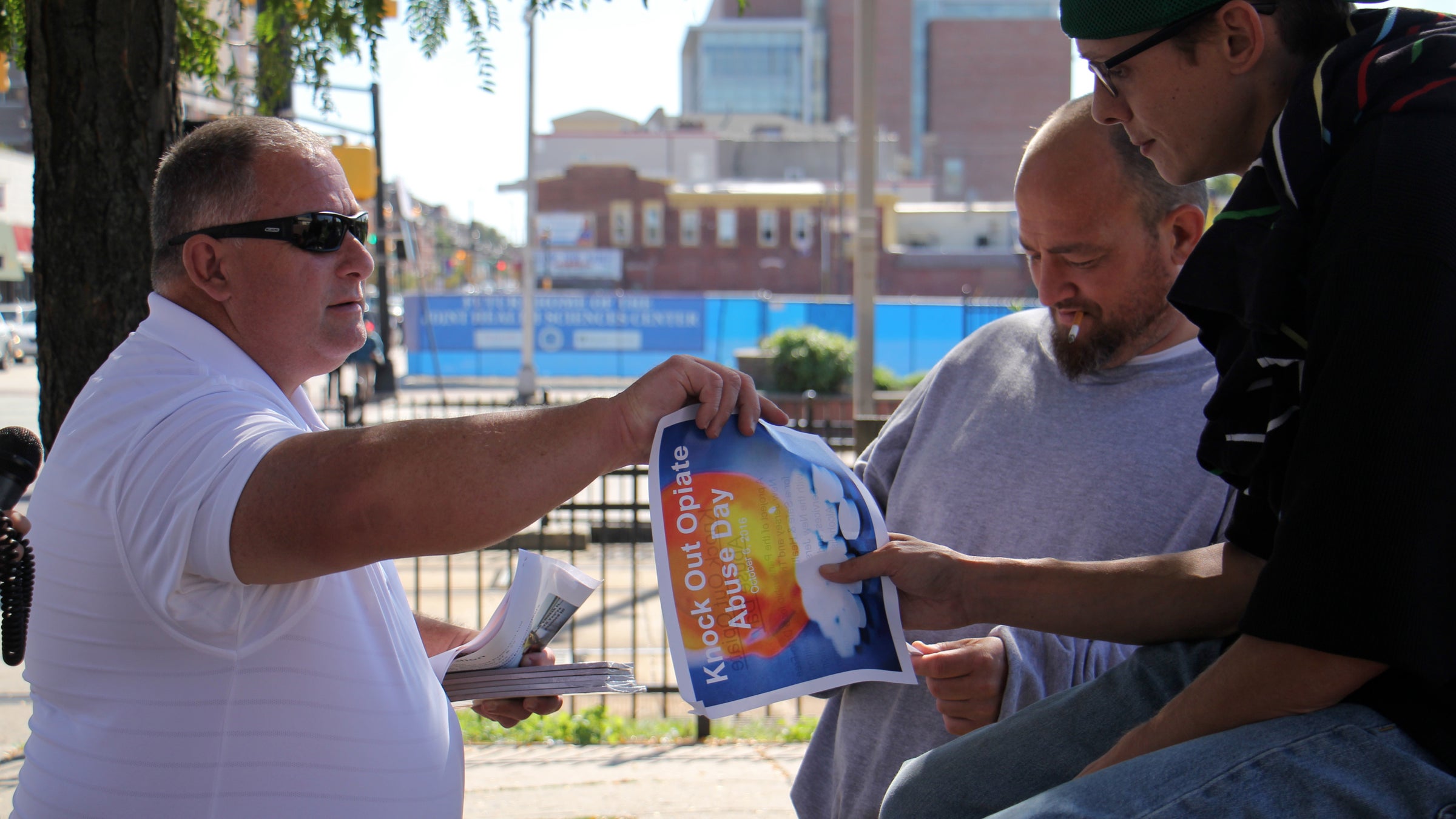Volunteers canvass New Jersey medical offices in effort to curb opioid misuse
Listen
Bob Chew
Hundreds of volunteers canvassed neighborhoods throughout New Jersey Thursday, but they weren’t doling out political materials. Instead, the group was targeting doctors, dentists and the broader community with messages about preventing opioid misuse.
“It’s everyone all in this together, you can’t just go after individuals selling the pills or individuals dispensing them, you have to talk about this with everyone,” said volunteer Bob Chew, a retired homicide detective and police officer in Camden.
Chew crisscrossed familiar hotspots in downtown Camden, this time armed with bright red and black door knob hangers and pamphlets with “Knock out Opioid Misuse” and “Before they prescribe, you decide” printed in big white letters.
“Knock out opioids, today!” Chew said to a couple who walked by. “It’s ‘knock out opiate abuse day’!”
“Oh yeah, wish we could,” one responded as Chew handed them both fliers. “We’re working on it ourselves.”
Partnership for a Drug Free New Jersey organized the daylong blitz.
Chew became involved with this and other projects as he observed the drug epidemic getting worse, with people who’d developed addictions to prescription opioids from all over the region increasingly coming to Camden to buy pills or heroin, to save money.
“I started to see at the end of my career that we were having some major problems in Camden with a lot of overdoses,” he said.
In 2014, New Jersey experienced an estimated 1,200 overdose deaths.
Later, Chew stopped in a doctor’s office and left a stack of door knob hangers, at the request of the front desk. Volunteers in other parts of the state also stopped in at doctor’s offices (perhaps echoing a tactic long used by the pharmaceutical industry) to talk with staff and leave booklets outlining new opioid-prescribing guidelines from the Centers for Disease Control and Prevention.
Partnership director Angelo Valente said doctors are the first line of defense in the prescription drug epidemic. For most part, he said, they want to do the right thing.
“We have learned most doctors are learning new information that’s helping them prescribe more safely, and this information needs to be shared with all doctors,” he said.
The new guidelines now advise primary care doctors to take more caution when prescribing pills, even in lower doses, because of potential overdose and addiction risks, and to consider effective alternatives, especially for treating long-term chronic pain.
WHYY is your source for fact-based, in-depth journalism and information. As a nonprofit organization, we rely on financial support from readers like you. Please give today.

